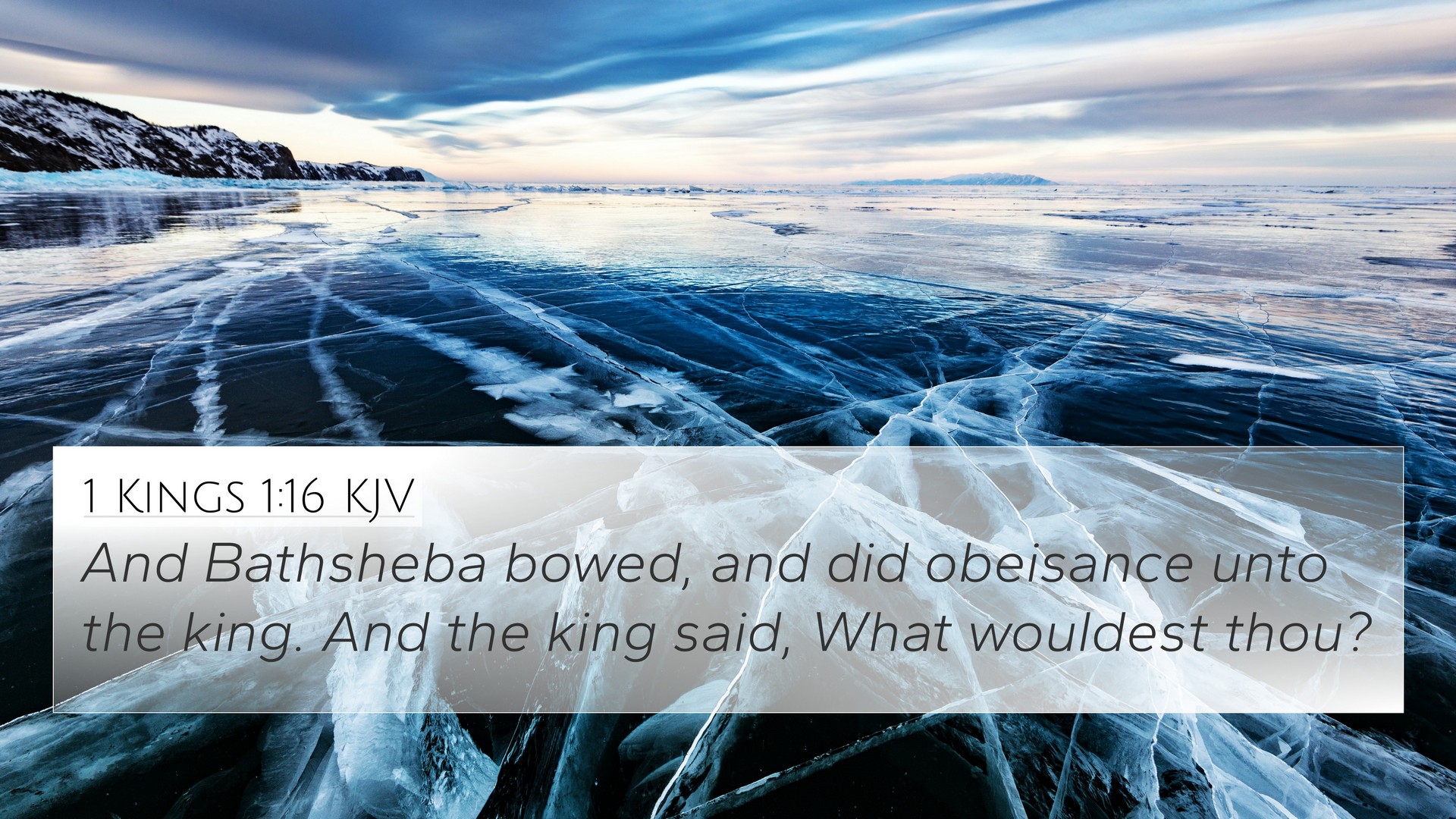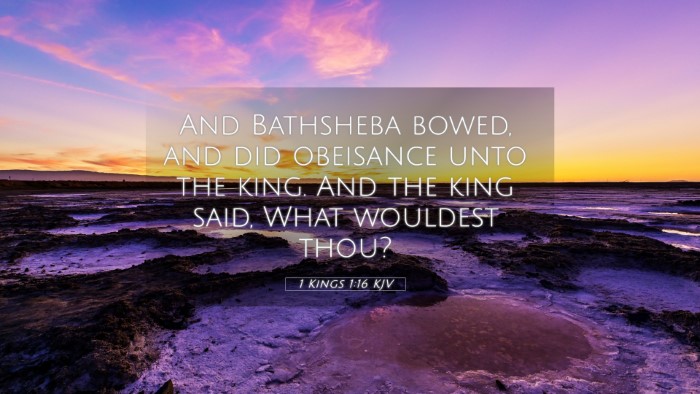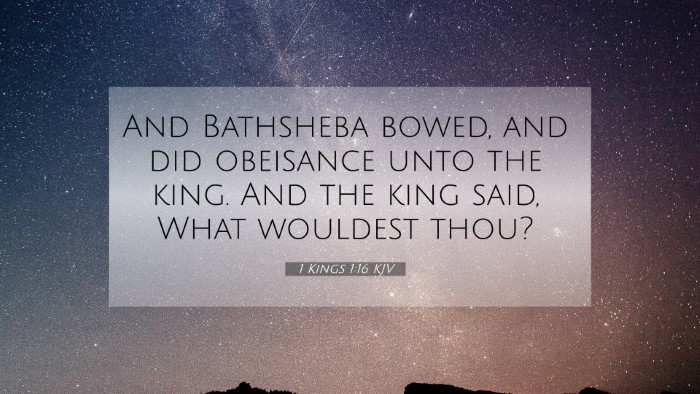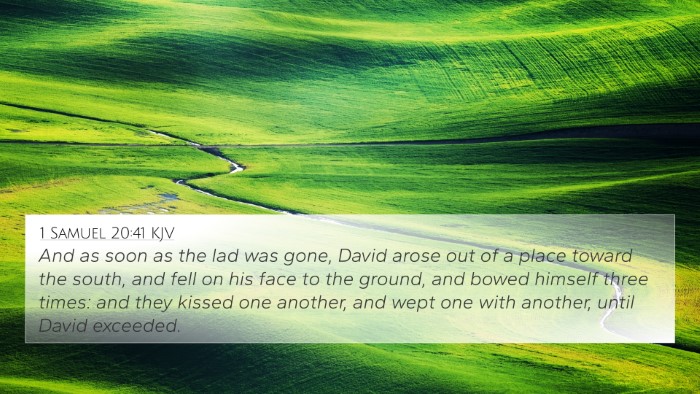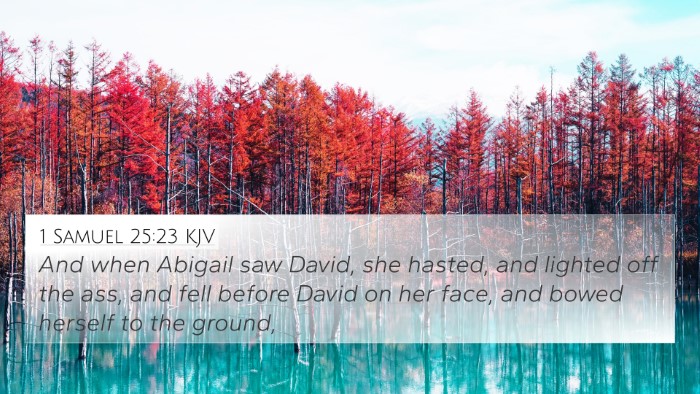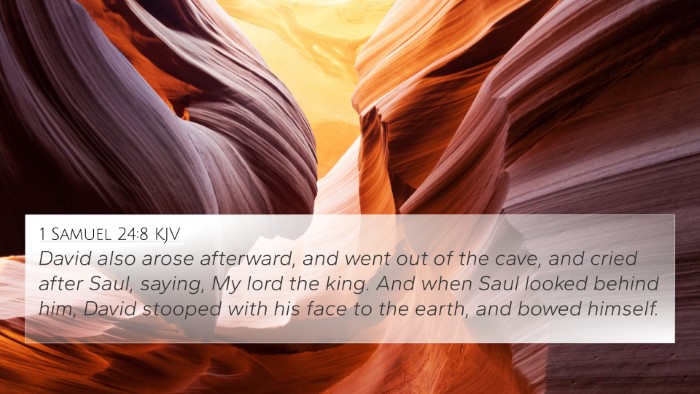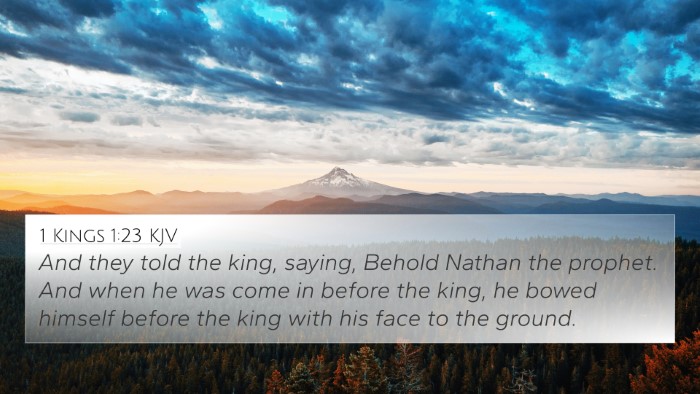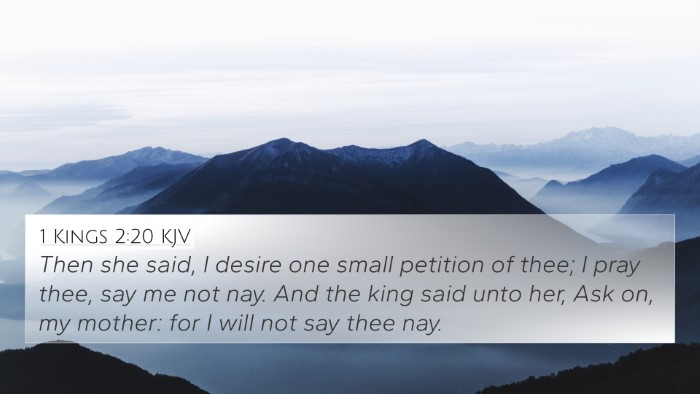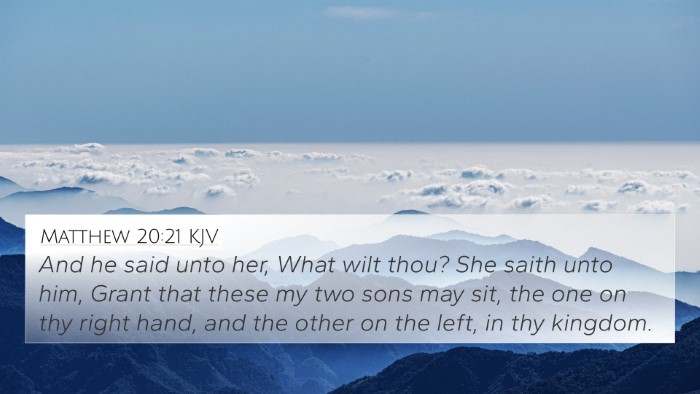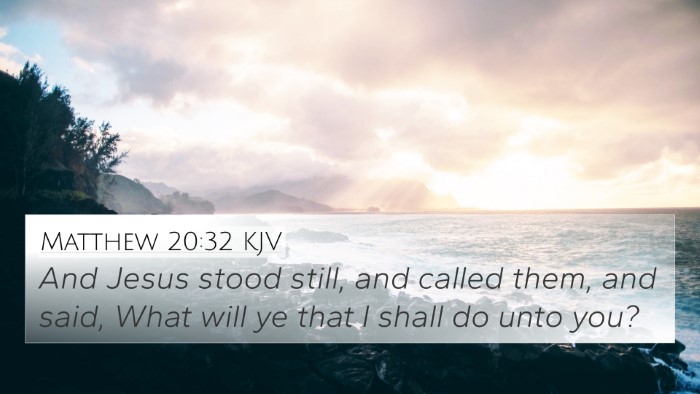Understanding 1 Kings 1:16
The verse 1 Kings 1:16 narrates an essential moment in the tumultuous transition of power in Israel during King David's later years. The verse states:
"And Bathsheba bowed, and did obeisance unto the king." (1 Kings 1:16 KJV)
Contextual Overview
In this chapter, we see Bathsheba, the mother of Solomon, approaching King David amidst a backdrop of political intrigue as various factions vie for leadership. As David is aging and his health declines, there is concern regarding who will take the throne. Bathsheba's actions here highlight her position and the desperation of the situation.
Commentary Insights
Insights from Matthew Henry
Henry emphasizes the significance of Bathsheba's humility and respect in her approach to the king. It reflects her understanding of royal authority and the serious nature of her request. Her act of obeisance represents not only respect but a tactic of diplomatic engagement within the court.
Insights from Albert Barnes
Barnes notes the political dynamics at play, indicating that Bathsheba’s reverence towards David demonstrates her understanding of the delicate balance of power. It also foreshadows her role in ensuring Solomon's rise to the throne, suggesting that her actions were strategic and aimed at securing her son's future.
Insights from Adam Clarke
Clarke discusses the personal and political ramifications of Bathsheba's actions. He highlights the fact that Bathsheba’s approach signifies not personal ambition, but a protective instinct towards her son Solomon, showing her initiative in a male-dominated environment. Clarke further notes the symbolism of her bowing, suggesting it is an act laden with meaning—acknowledging David's kingship while pushing for Solomon’s ascendance.
Bible Verse Cross-References
Understanding the context and meaning of 1 Kings 1:16 can be enhanced through cross-referencing with related scripture. Here are some key verses that resonate with the themes present in this passage:
- 1 Kings 1:5 - Discusses Adonijah’s claim to the throne, highlighting the rivalries present.
- 1 Kings 2:19 - Bathsheba's continued influence as she approaches Solomon for intercession.
- 2 Samuel 12:25 - Introduces Solomon, emphasizing the divine promise surrounding his birth.
- 1 Chronicles 29:22 - Solomon's anointment as king, showing the fulfillment of Bathsheba's intentions.
- Proverbs 31:1 - The teachings of a mother can emphasize Bathsheba's wisdom and influence.
- Matthew 1:6 - The lineage of Jesus through Solomon, linking to the New Testament and Bathsheba’s legacy.
- Luke 1:32-33 - The prophecy regarding Christ's eternal kingdom linking back to the lineage of David through Solomon.
Comparative Analysis of Related Themes
The themes of humility, political strategy, and maternal protection are evident in the narratives surrounding 1 Kings 1:16. These connections can be explored further through detailed studies.
Additional Insights into the Use of Cross-Referencing
Utilizing tools for Bible cross-referencing can deepen our understanding of the texts. Techniques include:
- Using a Bible concordance to find related themes and passages.
- Implementing a cross-reference Bible study guide to connect verses effectively.
- Engaging in cross-referencing Bible study methods to discern the thematic relevance.
Conclusion: The Role of 1 Kings 1:16 in Biblical Narrative
In summary, 1 Kings 1:16 stands as a pivotal verse that encapsulates the themes of honor, respect, and strategic foresight within the biblical narrative. It not only marks Bathsheba's actions but also illustrates a significant shift towards Solomon’s kingship. The inter-Biblical dialogue formed around this passage enriches our understanding of the roles of key figures in the unfolding story of Israel's monarchy.
